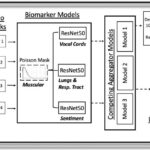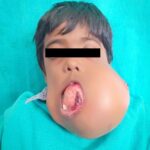Surprise is an understatement. That’s the only word I can think of to describe my reaction when cystic fibrosis (CF) was first mentioned to me as a possibility. I was 35 years old.
“Wouldn’t I know if I had cystic fibrosis?” I remember asking, trying to articulate my disbelief to the first doctor who suggested it.
“You would think,” she replied, “Cystic fibrosis is not subtle.”
But as it turned out, in my case, it was subtle, or at least subtle enough. I had been too understated about my symptoms over the years, and every doctor I had consulted had, seemingly, missed the less obvious signs. This led me to that moment – sitting in a urologist’s office, facing a potentially life-altering revelation.
My wife and I were struggling with fertility issues. Initial tests pointed to me as the source of the problem. During a physical examination, the urologist identified the issue almost immediately: congenital absence of the vas deferens. This condition, while explaining our fertility challenges, was also strongly linked to cystic fibrosis. The doctors suggested I might be a carrier, or perhaps, experiencing some effects of CF myself.
While there was a path to overcome the fertility hurdle – and I am now a proud father to a wonderful daughter – the CF aspect lingered. It felt like something we needed to investigate further.
Months later, I found myself in the cystic fibrosis clinic at Hasbro Children’s Hospital in Providence, R.I., meeting with specialists. They performed a sweat test, the standard diagnostic test for CF. While we waited for the results, I recounted my medical history. I considered myself relatively healthy, but I had a collection of chronic issues that had never been comprehensively addressed: asthma, frequent sinus infections, several bouts of pneumonia, nasal polyps, a persistent cough, difficulty gaining weight, osteopenia, and digestive problems.
After hearing my symptoms, the CF team seemed to already know the answer, even before the sweat test results were in.
It turned out I didn’t have the classic CFTR gene mutations usually associated with diagnosis in childhood. However, the disease had undeniably impacted my body, likely exacerbated by years of being undiagnosed and untreated. Receiving the diagnosis was a shock, even alarming, but it also brought a sense of relief. Finally, there was an explanation for everything I had been experiencing. Thankfully, treatments have been remarkably effective. My lung function has improved, I’ve gained weight, and I feel healthier than I have in years.
I try not to dwell on the potential damage from years of undiagnosed CF, but I am determined to learn from how this situation unfolded.
I had always assumed doctors had all the answers, failing to realize the crucial role patients must play in driving their own healthcare journey.
I should have asked more questions, pushed harder for definitive answers, and not passively accepted a misdiagnosis of asthma when my body was signaling something more complex. I also came to understand the inherent limitations of specialized medicine. An allergy and asthma specialist naturally focuses on allergies and asthma. An ENT specialist addresses issues of the ear, nose, and throat, like polyps. A gastroenterologist concentrates on digestive disorders like celiac disease. No single specialist had the complete picture, and I hadn’t effectively communicated my range of symptoms to create that bigger picture myself.
The responsibility also rests with me. I wasn’t always forthcoming about my symptoms. I had convinced myself that I was essentially fine, and I subconsciously resisted the possibility of anything being seriously wrong. Similarly, I wasn’t paying close enough attention to the subtle changes in my body. I simply pushed through, failing to notice the gradual worsening of my cough, which had become incrementally worse each month for years.
Two years post-diagnosis, I am still learning and adapting, but these lessons are now central to my approach to healthcare. During clinic visits, I ask every question that comes to mind. I am thorough and transparent when describing my symptoms. And in the time between appointments, I am more attuned to my body than ever before. I am slowly developing the ability to recognize subtle changes in my lungs, rather than ignoring them.
My experience with a late-in-life CF diagnosis might be uncommon, but the lessons I’ve learned are universally applicable. Be your own advocate. Be honest with yourself about your health. Pay attention to your body’s signals.
We all have this capacity within us. On the day of my diagnosis, the doctors, understanding the weight of the news, offered to wait a few weeks before starting treatment, in case I felt overwhelmed.
My response was immediate. I wanted to begin treatment right away.
There was no more time for subtlety.
Interested in sharing your story? The CF Community Blog wants to hear from you.

